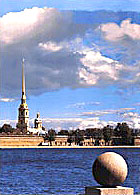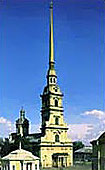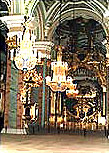¿Por qué registrarse al instante AHORA?
-
¡ES GRATIS Y SIN COMPROMISO!
¡No tienes nada que perder y mucho que ganar! NUNCA hay obligación alguna y NO SE REQUIERE TARJETA DE CRÉDITO. -
¡ACCESO COMPLETO A LOS PERFILES Y CARACTERÍSTICAS DE LAS MUJERES!
Tendrás acceso completo y GRATUITO a toda la información del perfil de las mujeres, incluidas todas las fotos disponibles y otras funciones mejoradas para ayudarte a explorar tus oportunidades. -
¡COMIENCE A RECIBIR CARTAS DE MUJERES!
Nuestros Matchmakers locales, reales y en vivo se ponen a trabajar para usted de inmediato, SIN COSTO, haciendo coincidir su perfil con mujeres potenciales en su ciudad o región! La mayoría de los hombres empiezan a recibir cartas de mujeres cualificadas en uno o dos días, a veces incluso en unas pocas horas. -
¡OPORTUNIDAD DE VER VIDEOS DE MUJERES!
¡Tendrá la oportunidad de ver los videos de perfiles de mujeres (si están disponibles) producidos por nuestro personal local y que se encuentran exclusivamente aquí! -
¡TÚ TIENES EL CONTROL!
TÚ tienes el control. TÚ eliges quién, cómo y SI quieres comunicarte con una mujer. ¡NUNCA ninguna obligación! -
SERVICIO AL CLIENTE INIGUALABLE
¿Preguntas? ¿Preocupaciones? ¡Te invitamos a llamarnos o contactarnos en cualquier momento! Nuestra información de contacto se encuentra en la parte inferior de casi todas las páginas.
Crea tu Inicio de Sesión Aquí
Al hacer clic arriba, reconoce que ha leído y acepta nuestros términos y condiciones y política de privacidad.
¿Ya eres Usuario? Iniciar Sesión aquí.

 Designed to protect newly acquired lands from invading Swedes (it worked - the Swedes were kept at bay for almost three centuries and only now are able to realize their historic imperial ambitions through trendy restaurants, luxury hotels, and catering companies), the hexagonal shaped Peter and Paul Fortress lost its military significance before it was completed.
Its guns never saw any action and were put to use as a flood warning signal and the fortress housed a political prison for two hundred years.
Designed to protect newly acquired lands from invading Swedes (it worked - the Swedes were kept at bay for almost three centuries and only now are able to realize their historic imperial ambitions through trendy restaurants, luxury hotels, and catering companies), the hexagonal shaped Peter and Paul Fortress lost its military significance before it was completed.
Its guns never saw any action and were put to use as a flood warning signal and the fortress housed a political prison for two hundred years.
 One ticket is good for the whole kit and kaboodle. In the center of the Fortress, there is Peter and Paul's Cathedral (1727, architect D. Trezzini), which is the burial place of all Russian Emperors except Peter II and Ioann VI.
One ticket is good for the whole kit and kaboodle. In the center of the Fortress, there is Peter and Paul's Cathedral (1727, architect D. Trezzini), which is the burial place of all Russian Emperors except Peter II and Ioann VI.
 In the gardens there is an interesting and controversial monument by the local artist Shemiakin to Peter the Great. Unveiled in May 1991, the monument stirred controversy because it portrays Peter not as a majestic giant on horseback as is the norm, but as an old man with a remarkably tiny head.
In the gardens there is an interesting and controversial monument by the local artist Shemiakin to Peter the Great. Unveiled in May 1991, the monument stirred controversy because it portrays Peter not as a majestic giant on horseback as is the norm, but as an old man with a remarkably tiny head.